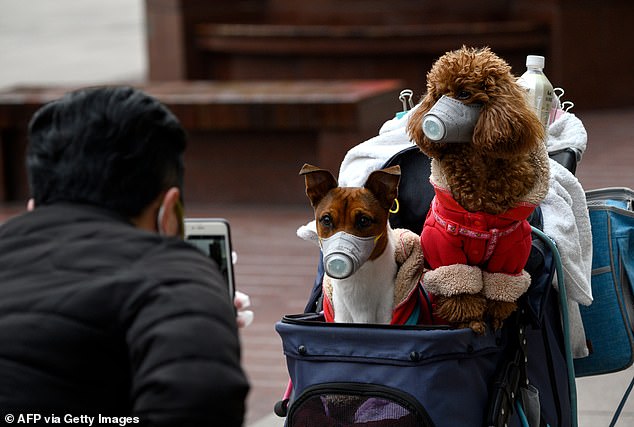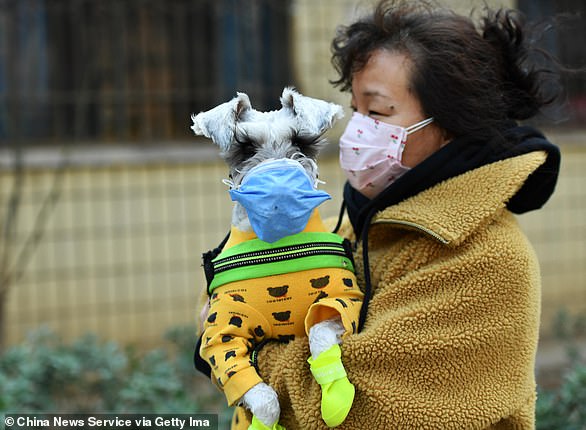Since February 26, the 17-year-old Pomeranian who belonged to aCovid-19 patient had been quarantined at a government facility and returned home on Saturday.
A spokesperson for the Department of Agriculture, Fisheries and Conservation (AFCD) in Hong Kong told the South China Morning Post:’ The department heard from the dog’s owner that it passed away on March 16. The owner said she did not want to [allow] an autopsy to look into the manner of death.’
The first dog in the world to be found with the new coronavirus died on Monday after testing negative for the disease and returning home, according to Hong Kong’s animal welfare authority.
Throughout their quarantine the dog had been checked repeatedly. A total of five checks for the virus from their nasal and oral samples both showed “poor positive” results.
It wasn’t until the two tests–performed on March 12 and 13–showed that the dog’s samples were negative that the department allowed it to leave the center and go home.
The owner of the dog was known locally as the businesswoman Yvonne Chow Hau Yee, who is 60. She became diagnosed and hospitalised at the end of February. On March 8, she recuperated and returned home.
Serology tests, which search for antibodies in the blood, were conducted on the dog from March 3 and returned negative on March 12, indicating there were no coronavirus-specific antibodies present in its mechanism.
Prior to this, the AFCD reported that the genetic structure of the virus found in Ms Chow Hau Yee and the dog was quite similar.
The department said earlier that there was a very close genetic structure of the virus found in the dog and its human contacts.
“It is understood that antibodies may not always develop in some asymptomatic or mild cases of human infections with other forms of coronavirus,” it said.
The tests of the [gene] sequence suggest that the virus possibly spread from the infected persons and then infected the dog, “it said in a statement.There is currently no proof that pet animals could be a vector of illness or that they could become ill, the department emphasized.
The WHO said:’ While there has been one case of a dog being infected in Hong Kong, there is no evidence to date that COVID-19 can be transmitted by a dog, cat or any pet.
COVID-19 is spread mainly through droplets formed when a person who is infected coughs, sneezes or talks. Clean your hands regularly and thoroughly to protect yourself.






